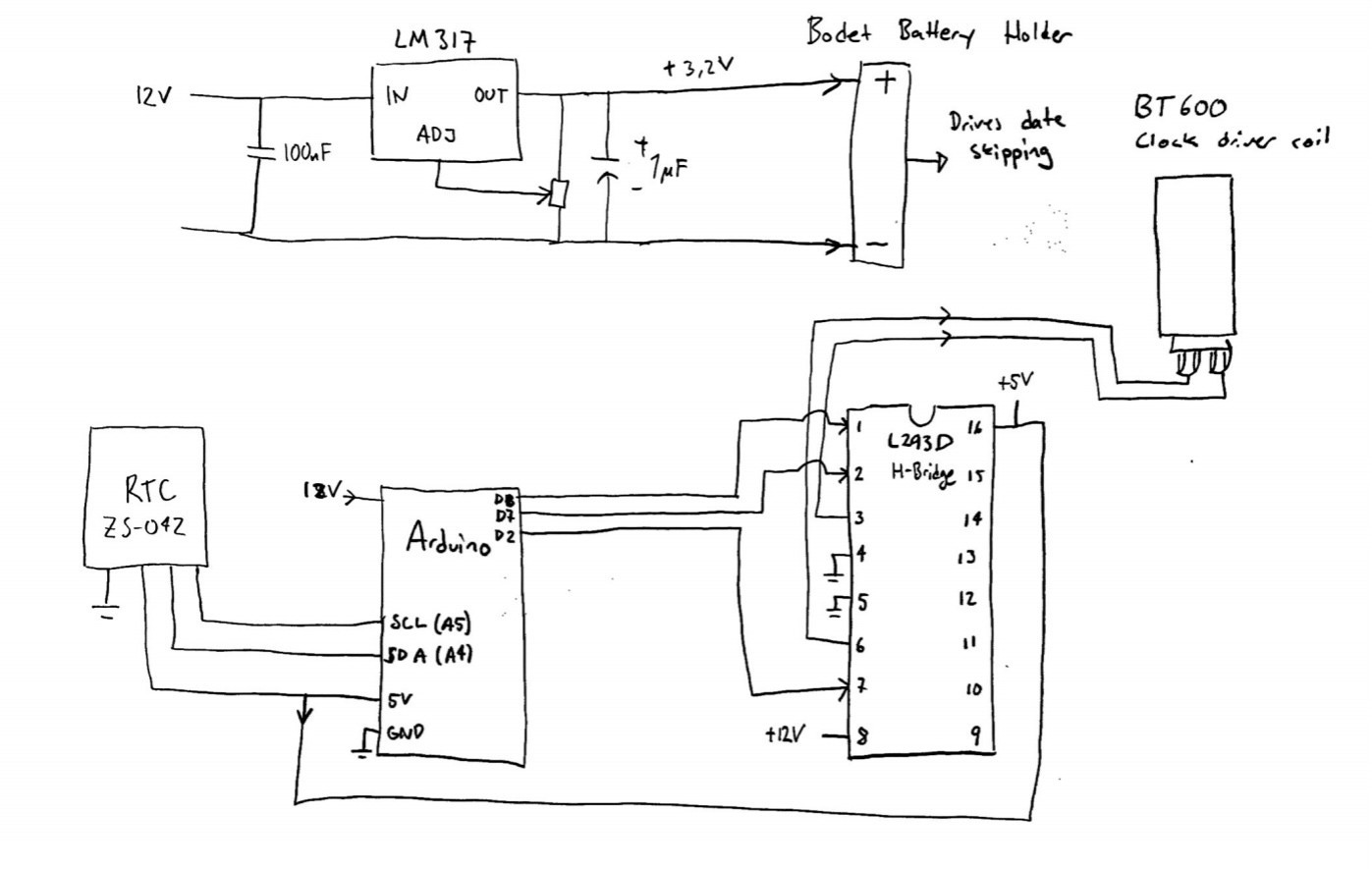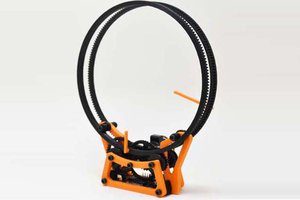Below is an explanation and details of the build. Everything done here will work on other slave clocks expecting a 1Hz pulse. The one thing to keep in mind is the voltage of the clock motor. This should be adjusted to the appropriate level by changing the H-Bridge supply voltage.
The whole mechanism explained:
This is what the date skipping looks like, cat approved:
Adding on a Real Time Clock
After running the clock for about a week it was several minutes off. Apparently the code I've written based on millis() in Arduino is not accurate enough. instead added a RTC and wrote a code that flips the output every time a the minute is increased. Even if there is some time lag in the code this will not accumulate and the error is reset every new minute.
Schematic:

The LM317 is used just because I did not have any fixed regulators in my workshop. A standard 3.3V regulator would have been fine. Everything is run of a 12V AC/DC converter.
 iSax
iSax


 Henry York
Henry York
 ekaggrat singh kalsi
ekaggrat singh kalsi
 Steve
Steve
Wait, I think I've seen that cat before...